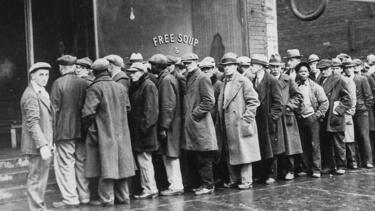Economics
Free Pre-K Gives Parents’ Income a Long-Lasting Boost
Prof. Seth Zimmerman and his co-authors found that parents with kids in New Haven’s lottery-based pre-K program earn thousands of dollars more per year than their peers, likely because they are able to work longer hours and make more progress in their careers.

Does Performance-Based Pay Improve Teaching?
Yale SOM economist Barbara Biasi studied what actually happened when some school districts in Wisconsin started paying partly based on effectiveness.

Three Questions: Prof. Barbara Biasi on Teacher Pay
We asked Barbara Biasi, a labor economist with a focus on education, about this year’s teachers' strikes and the wider implications of how we compensate teachers.

How Do Local Events Affect the National Economy?
A new study found that local disruptions, whether hurricanes or economic booms, affect the national economy differently depending partly on how much an area’s industries are connected to other sectors and regions.

Is Antitrust Enforcement Out of Date?
U.S. antitrust laws, Yale SOM’s Fiona Scott Morton says, were written when new technology meant “typewriters and buggy whips and bicycles.” She assembled a group of economists and legal scholars to examine areas in which enforcement is out of sync with a changing economy.

Three Questions: Prof. Peter K. Schott on Tariffs and Trade Wars
President Trump has imposed a series of tariffs, raising tensions with allies and prompting other countries to respond in kind. We asked Yale SOM’s Peter K. Schott, who studies how firms and workers respond to globalization, to assess the current climate.

Do Companies Buy Competitors in Order to Shut Them Down?
A study co-authored by Yale SOM researchers Florian Ederer and Song Ma suggests that “killer acquisitions” by pharmaceutical companies are potentially limiting the number of new treatments available.

Three Questions: Prof. William B. English on the Debut of the New Fed Chair
We asked Prof. William B. English, who spent more than two decades as an economist at the Fed, to interpret new Fed chair Jerome Powell's first Open Market Committee meeting.
Does Automatic Enrollment into Retirement Plans Hurt Household Finances?
When companies automatically enroll employees in retirement plans, the employees save more money for their later years. But the extra savings may exact a pre-retirement toll on their finances.

The Trump Boom Is Making It Harder to See the Next Recession
We are overdue for a recession, but economists can't say with much certainty when it will arrive.

To Counter the Loss of the Federal Mandate, Create a State Healthcare Fee
To avoid higher premiums and more “free riders," Fiona Scott Morton proposes that Connecticut require residents to buy insurance, contribute to a Health Savings Account, or pay a fee to the state.